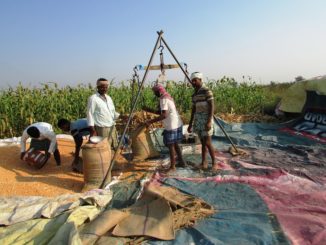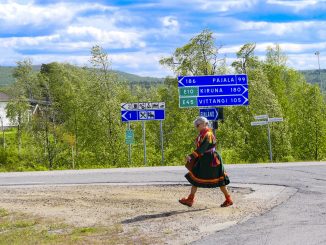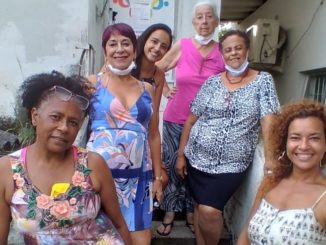 A guest post by Stanka Becheva and Stephen Meredith
A guest post by Stanka Becheva and Stephen Meredith
There are only a few weeks left until the current college of Commissioners and Janez Potočnik – Environment Commissioner – step down. Yet one of Potočnik’s initiatives, to launch a communication on the sustainability of the European food system – which raised expectations among many civil society groups – will not see the light of day before he leaves.
According to the Commissioner himself the document is ready to be launched, but will now come under the remit of the Commissioner-elect for Health and Food Safety. Questions now remain about what is left of the initial idea which was part of the Commission plans to shift the EU towards a circular economy. How will the incoming Commissioner-elect – Vytenis Andriukaitis deal with it?
Solutions highlighted in the past two years
Over the last two years, a broad coalition of civil society groups including social, environmental, health and organic farming organisation – many part of the ARC2020 platform – have actively engaged with the Commission calling for a paradigm change in food consumption policy. In November 2012, a wide range of stakeholders participated in a two-day hearing on ‘Sustainable Food’ organised by a working group – from different sections of the Commission – led by DG Environment. At the hearing, civil society groups highlighted a number of issues – in particular how existing EU policies and funding streams could be reformed – in order to solve key production and food chain challenges and how to support and explore further working solutions. Issues addressed ranged from increasing the production of sustainably produced food based on the principles of food sovereignty and supplying public institutions with fresh produce, to increasing the production of European plant proteins and reducing the consumption of industrially produced meat. These very productive and open discussions left the impression that this new initiative could help to develop a more holistic approach to begin to change consumption and food supply patterns. This holistic approach should be capable of addressing and influencing a number of key EU policies like Rural Development Programmes under the Common Agricultural Policy, green public procurement guidelines and EU promotional policies and transitioning towards more sustainable food and farming systems.
Further civil society engagement came during the Commission’s consultation on “Sustainability of the Food System”, which ran between July and September 2013. The questions in the consultation were still related to changes in policies and approaches throughout the food chain, confirming the impression that the communication could lead to the development of an innovative roadmap for sustainability integrating different policies and ensuring policy coherence and real examples of the Commission’s commitment to smart, sustainable and inclusive growth under the EU 2020 Strategy. By the beginning of 2014, despite civil society’s positive engagement, it began to emerge that efforts by special interests to maintain a business-as-usual approach were beginning to gain ground as the Commission began to shift their plans solely towards the issue of food waste. With per capita food loss in Europe 95-115kg/year, the issue of waste is clearly a critical part of the jigsaw. However, such a narrow focus would not be capable alone of tackling the failures of our industrial food chains and unsustainable consumption patterns.
Nevertheless, civil society remained engaged questioning the movement away from holistic solutions and expressing their support for such initiatives and listing a number of demands related to it.
Towards real sustainable food systems: What needs to happen next?
The incoming Commission has outlined its commitment to the ongoing development of its Circular Economy package and has linked it to the jobs and growth agenda and our broader environmental objectives. To this end, it must ensure that a sustainable food policy is set in motion that can deliver real smart, sustainable and inclusive growth.
Early in its term, the incoming Commission can already start to lay the foundations by ensuring that:
- New rural development programmes are fully equipped to stimulate agro-ecological approaches and value chain investments based around short supply chains, innovation that can transition EU agriculture towards agro-ecological production systems and community-led development pioneered through the LEADER approach.
- The mid-term review of the multi-annual financial framework in 2016 sets aside comprehensive resources to enable a more coordinated approach for sustainable food development, from increasing the rural development budgets to at least 50% of the overall CAP spending to investing a minimum of 50% of an increased budget on agro-ecological approaches.
- The reform of the CAP fruit and milk schemes and promotion programmes stimulate the development of sustainable food production and consumption and help to build awareness amongst citizens about the importance of sustainability for our long-term food security.
- The review of EU guidelines on Green Public Procurement (GPP) in 2015 fully recognises the important contribution of sustainable family farms and short supply chain development to delivering GPP objectives. The Commission should also carefully take in the account the role of alternative food networks such as community supported agriculture and public-private partnership models to the realising of sustainable consumption outcomes.
- All relevant actions and recommendations set out in the EU Organic Action Plan are implemented and built upon to 2020 in order to support the sustainable growth of the organic sector across the EU.
- A food waste reduction strategy is implemented across Europe, with mandatory reduction targets, to change the current model of producing, retailing and consuming food, and to put in place the necessary measures to ensure that food waste does not occur in the first place.





Great photo! Great ideas.. Scandalous that it was blocked! Just like the list of other files, see: http://www.euractiv.com/sections/science-policymaking/how-commission-blocked-key-environmental-plans-304834 But not confident at all that the new Commisson being stitched up now will be any better..